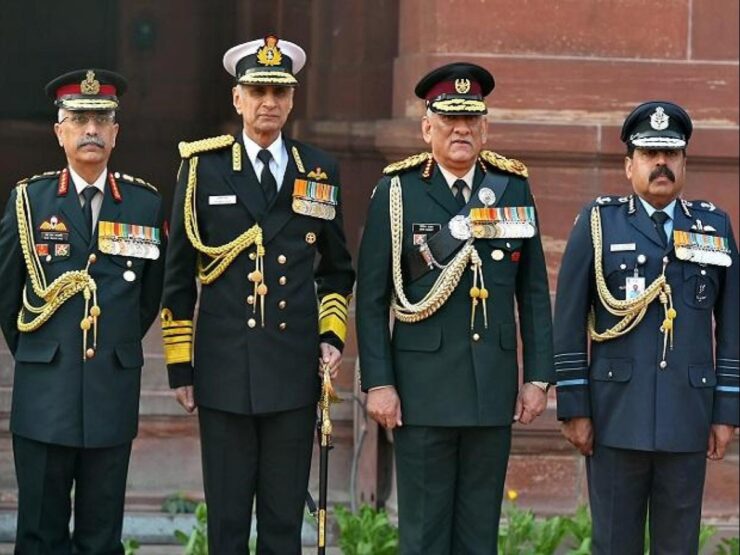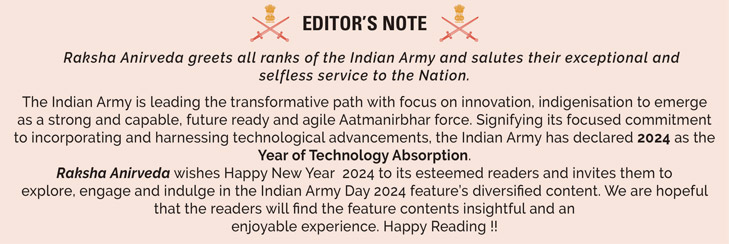
The 8th of December 2021, will be remembered as a black swan day in the history of our nation. India lost its serving CDS, General Bipin Rawat and many other bravehearts to a very unfortunate helicopter crash, which shook the emotional edifice of every citizen of the country.
The magnitude of the loss was immense as Gen Rawat who was heading the Department of Military Affairs (DMA), was navigating the Armed Forces towards a host of reforms which included the theatrization of commands, delineation of the intricate command and control structure, impetus to defence acquisitions and ‘Aatmanirbhar Bharat’, gearing up cyber warfare capability and a host of other defence security related measures.
Mandate for DMA
The recently established Department of Military Affairs (DMA) logically does not have a second-in-command and therefore in the current scenario has been rendered headless, though in the interim the present Chief of the Army Staff, Gen Naravane has been appointed as Chairman, Chief of Staff’s Committee to fill up this void.
The DMA has been given a mandate by the government of India to provide the much-needed impetus to the series of reforms recently announced by the Defence Minister which includes announcement of a negative list for imports and corporatization of the Ordnance Factory Board (OFB).
Initiation of Tasks by CDS
The Chief of Defence Staff (CDS) commenced work on December 31, 2019, and took on the mandate assigned to him in all earnest. Studies were ordered for an analysis and formulation of an integrated capability development plan (ICDP) as well as creation of four integrated theatre commands which included the Western and Eastern Theatre Commands, the IAF Air Defence Command and the Navy’s National Maritime Theatre Command. The fifth envisaged command i.e., Northern Command (Army), was deferred considering the ongoing situation at the LAC with China.
A positive indigenization list was formulated which consisted of defence equipment which would be indigenized in the country. Thereafter, a concerted effort was made to get all the three services together to think beyond their turf and arrive at a consensus to the envisaged concept of theaterisation and synergize the effort towards maximization of impact during war.
The need for keeping up the momentum of all these efforts is being increasingly felt in view of the prevailing geo-political and security situation the country is facing today. The massive deployment of PLA at the LAC presents a formidable challenge to take forward this unfinished agenda to its logical conclusion within the targeted time frame which is 2023. Towards this end it becomes quite imperative for the government to announce a new CDS without any further delay.

Urgency to Address the Unfinished Agenda
It is an irony that the Integrated Defence Staff (IDS) came into being in 2001, but the integration remained on paper. The numerous obstacles posed by the bureaucracy due to their lack of understanding of military matters never got this integration going. The problem was further compounded by the three services who gave preface to their individual requirements rather than focus on jointmanship. Gen Rawat, to some extent, was able to push through these obstacles due to his proximity with the Prime Minister and NSA.
We also need to be aware of the fact that the process of setting up theatre commands was delayed due to the reluctance of the IAF to fall in line. After all, India does not want a situation which emerged in the United States, when the Goldwater Nichols’ DOD Re-organization Act had to be invoked when the Armed Forces did not arrive at a consensus towards acceptance of the theaterisation of commands.
To ensure that the process got underway, four different study groups each headed by a three-star ranked officer were ordered and report is to be submitted by end December this year.
The other un-finished agenda relates to the study on Integrated Capability Development Plan (ICDP). This study would be focusing on India’s security threats, the available budgets and military equipment required to meet the envisaged threats. The study would align to the Defence Acquisition Procedure 2020 and work out capability development along a ten-year perspective divided into two five years plans and further breaking it into a two-year immediate acquisition plan.
If the government dedicates a budget to this laid down process we could see a positive improvement in our overall defence capability.
The Path Ahead
If we have to embark on a new dawn, the process initiated needs to be followed up in the right earnest. The new CDS will have to overcome the inertia and start evaluating the various studies ordered to be able to draw a road map for the future. This would require a series of deliberations with all the stakeholders to arrive at cogent recommendations which would get placed to the government. All this would need completion before the end of 2022.
As can be foreseen, the challenges ahead are immense. Apart from the issues of theaterisation and capability building, there is a need to further the ‘Aatmanirbhar Bharat’ campaign through strategic partnerships.
So far, we have only heard of a Joint Venture with the Russians for setting up an AK-203 assault rifles venture in Amethi (UP). Let’s move beyond the political landscape and identify other areas for setting up production in the country. The government needs to lend more clarity on this aspect.
The nation would also like to know, how we intend to take the Corporatization of Ordnance Factory Board (OFB) forward. There were some inherent issues with regard to existing work force and its utilization. The management of human resource will always remain a vital component for any reforms to succeed.
A recent war-game on corporatization of OFB revealed that out of the seven new entities, a few may have to be reviewed for their further sustenance due to lack of orders and environmental factors. It is important for a mid-term review to re-assess the situation lest we stare at a failed exercise.
(The writer has authored the book “Breaking the Chinese Myth”, available on Amazon)











